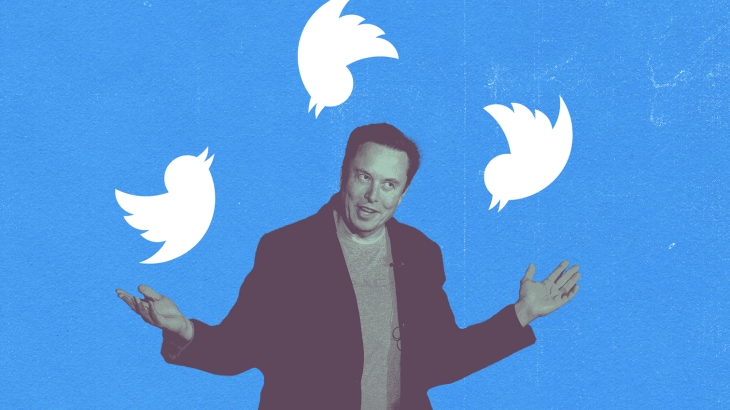By Dan O’Rourke
With the arrival of the billionaire charlatan Elon Musk as new CEO of Twitter, the influential social media company has announced a series of global layoffs, including in Ireland. Up to half of the company’s workers could be dropped. This includes many of the 500 workers based in Dublin.
After buying the company for a massively overpriced $44 billion, Musk is trying to cut costs in order to ensure his investment will pay off. Disgracefully, staff were told of the news by email, similar to the Debenhams workers in 2020 who were also forced to pay for the blunders of their incompetent bosses.
Musk is insisting that he bought Twitter because he believes “it is important to the future of civilization to have a common digital town square, where a wide range of beliefs can be debated in a healthy manner, without resorting to violence.” The money for the deal was financed by Prince Alwaleed bin Talal. This means the Saudi state, hardly a beacon of free speech, is now the second biggest owner of Twitter.
Musk’s mismanagement of the platform has already caused a torrent of vile abuse to flood the website. Meanwhile, previously banned bigots wait to be allowed back.
Tech workers must unionise
The announcement at Twitter comes as other tech companies sacrifice their workers to Wall Street. As of September, companies such as Snap, Netflix and Microsoft, have fired more than 41,000 workers in the US.
Other tech giants are adding to that toll. Facebook is now warning of massive layoffs following Zuckerberg’s expensive Metaverse flop and subsequent share price plummet. Online payment company Stripe, founded by Irish brothers John and Patrick Collison, is firing 14% of its staff globally. Stripe employs about 600 people in Ireland, and Facebook over 4,000.
With Ireland established as the “tech hub” (aka tax haven) of Europe many hundred of workers here are now exposed to the whims of their bosses. Previously seen as a well paid and secure line of work, tech workers could rely on the high demand for their labour to ensure good wages, benefits and stability.
It seems that this era of relative stability is coming to an end, however. Aside from the careless business practices of tech bosses and general slow down in the economy, other factors causing this phenomenon include an increase in developers on the market, more efficient processes, and the beginnings of automation. All this can potentially undermine the bargaining power of tech workers, who are generally not unionised.
And now is the time to rectify this situation. It is essential that unions now launch drives to recruit and organise tech workers. And likewise that tech workers, whether in the struggling companies or those currently stable ones, begin the process of organising together to build resistance to the erratic whims of the bosses and the capitalist market.
If posts from ex-Twitter workers, and those left behind, are anything to go by, the sense of community and solidarity among Twitter workers is strong. Organised against Musk and other incompetent tech-bros, this solidarity would be a powerful weapon.
The internet as a public utility
The internet was initially built to enable free and open sharing of information — essentially a digital library. The arrival of the profit-focused tech bros turned the internet into the veritable hellscape we’re familiar with today.
Jack Dorsey, the founder of Twitter, stated his regret at Twitter becoming a company, rather than an open protocol like email technology, which is not centrally controlled or run for profit. However, even email, created when the internet was less commodified has become overrun with spam and scams.
Running the internet on a free-market based system means that the use value and the user experience of these sites takes second place to optimising for profits. The ad revenue model of the social media giants means algorithms are designed to capture users’ attention at all costs in order to make the platform more valuable to advertisers, usually by promoting controversy and generally harmful views.
In order for social media to realise its potential as a useful information and discussion tool for all society, it must be freed from the obligations of the free market. Companies such as Twitter, Instagram and Facebook should be taken into public ownership and run democratically by their highly skilled workforces, with real input from users and proper regulation by the state. They could then be run on a not for profit basis, with all advertising banned.












